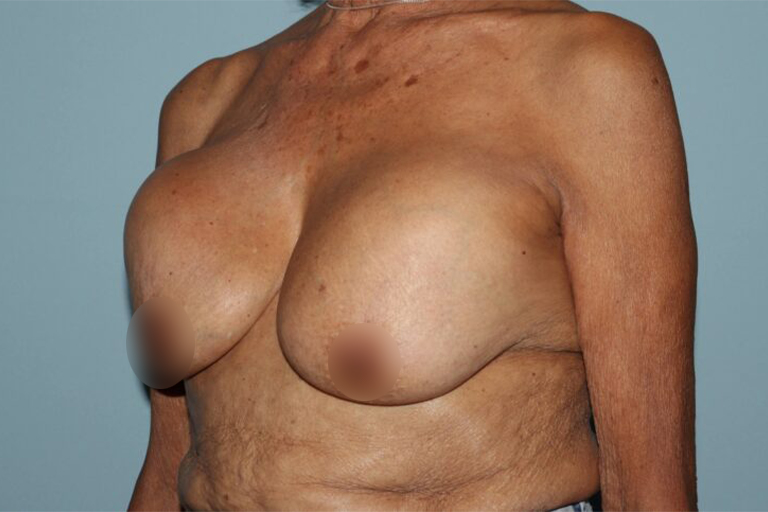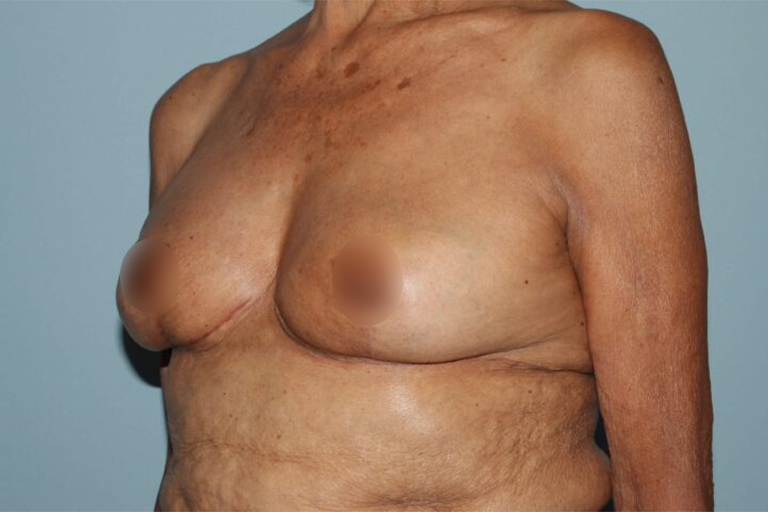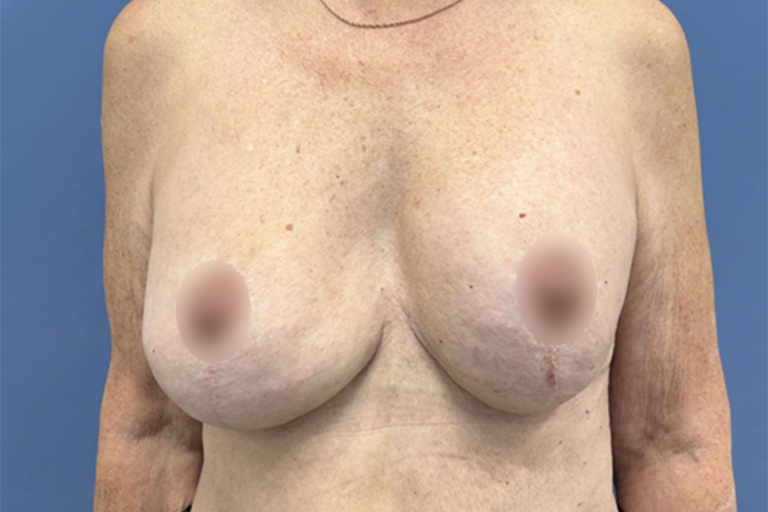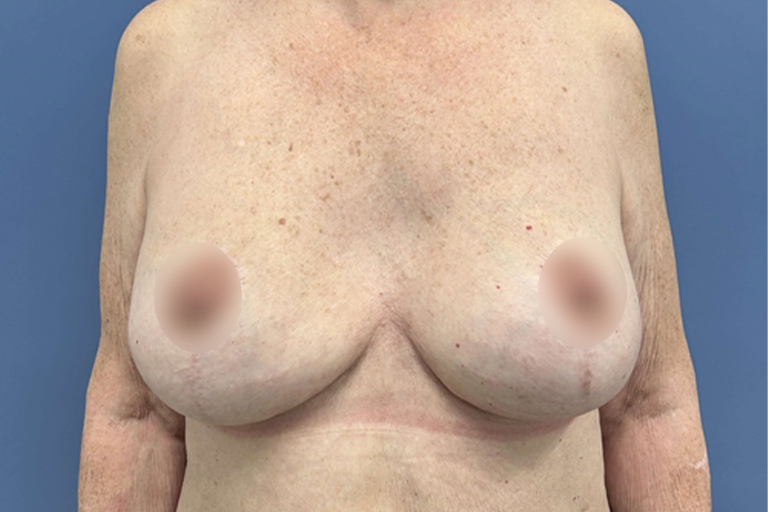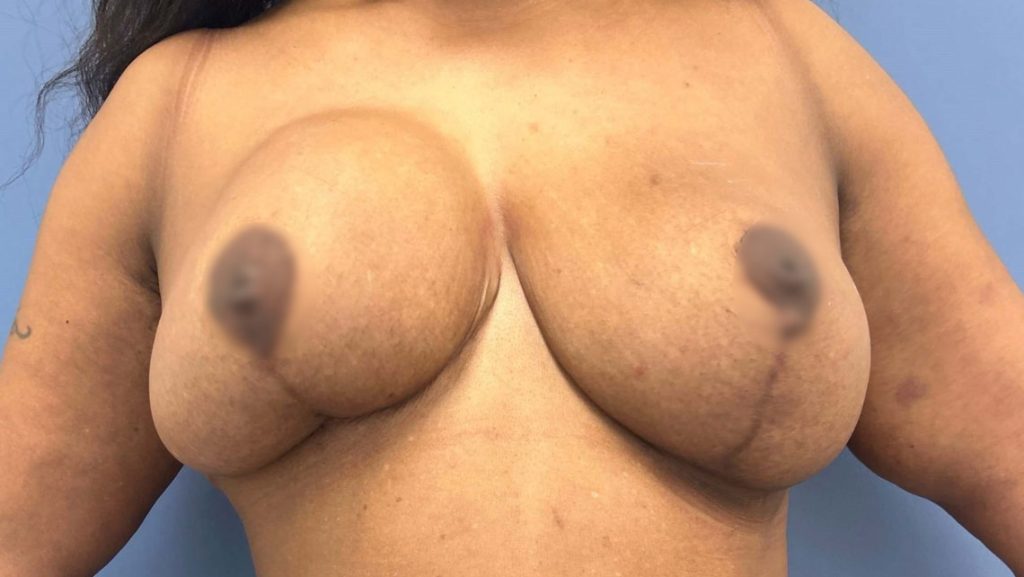
Capsular contracture is an abnormal condition that can occur around a breast implant causing it to feel firm, misshapen and even painful. It is a known complication of breast augmentation that is a consequence of fibrosis of the normal scar tissue that typically forms around the device. All foreign objects placed in the human body will stimulate a healing response that walls off the material as a protective mechanism. This occurs around a splinter, an artificial knee and other implantable devices. The normal capsule that forms around the breast implant is usually very flimsy and pliable. When this capsule becomes thicker it can result in a capsular contracture.
Baker Class of Capsular Contracture
Capsular contractures are classified by severity by something called the Baker scale which was developed by Dr. James L. Baker of Winter Park Florida. A Baker grade I is a normal feeling implant, whereas a Baker grade II is fairly normal non distorted but slightly firm feeling implant. Baker grade III occurs with distortion of the breast shape and very firm capsule whereas a Baker grade IV has the same characteristics but also has pain. Fortunately, capsular contracture rates around breast implants have decreased in the last decade primarily owing to improvements in implant technology as well as improved surgical techniques. It still occurs in 10% of patients at the 10-year mark in primary breast augmentation and even higher rates in other situations like revisional surgery. It is multifactorial in etiology but felt to be from an inflammatory process that affects the normal scar tissue. This could be from excessive blood around the implant or even low-grade infection as well as genetic predisposition. There are very few treatments for this. Some medications have shown some ability to treat or prevent this condition but generally if the condition is bad enough it does require additional surgery. Most capsular contractures-at least 75%-occur during the first 2 years after implant placement but can occur at any time after surgery.
Breast Implant Company Warranty
Breast implant manufacturers have improved their implant warranties especially in the last few years. While they have always had a lifetime replacement policy for implants that rupture or leak, more recently they have also covered capsular contracture. If this complication occurs within the first 2 years of surgery implant- and is at least Baker III or IV, manufacturers will provide a new breast implant as well as financial reimbursement for some of the surgical costs. If it occurs after 2 years, they will still replace the implant but will not add the additional financial benefit. Some manufacturers also offer an enhanced warranty for a relatively small additional fee. The Mentor, Allergan and Sientra (now called Tiger Esthetics) implants all include some form of warranty. This is a nice benefit that is a bit surprising since the implant itself is not necessarily the cause of the contracture and yet the manufacturers are still providing this added protection.
This 50-year-old woman underwent augmentation mastopexy as well as some other procedures in Miami, Florida. She came back to Raleigh and had Dr. Lyle assist with some of her postoperative care. Within a year she developed a significant capsular contracture-Baker grade IV on the right side. She did not want to return to the original surgeon. She had successful treatment by Dr. Lyle with a complete capsulectomy and implant exchange with resulting soft naturally appearing right breast. Her implant company provided a free implant and some additional reimbursement.
It is important to have a preoperative discussion with your surgeon about these policies prior to your breast augmentation.
Breast Implant Removal Before and After Photos

Meet Dr. Glenn Lyle
Board Certified Plastic Surgeon
Dr. Glenn Lyle, a board-certified plastic surgeon, has been proudly serving the Raleigh, NC, community at Lyle Plastic Surgery and Aesthetics Center since 2002. With a deep passion for helping patients reclaim their confidence, Dr. Lyle specializes in transformative breast surgery and body contouring procedures. Whether addressing the effects of weight loss, pregnancy, or aging, his expert care and artistic approach empower individuals to look and feel their best. Dr. Lyle is dedicated to creating beautiful, natural results that reflect each patient’s personal journey and goals.
Next Steps
If you’re considering a breast implant removal surgery in Raleigh, NC, and want personalized advice about your suitability, recovery, risks and results, I’d be happy to meet with you for a consultation. Let’s work together to help you achieve your best results – safely and beautifully.
To book a consultation please fill in the contact form or phone the office on (919) 307-8585.
